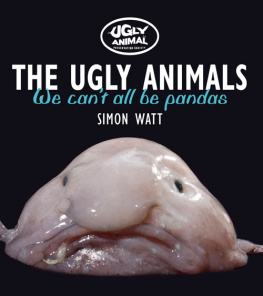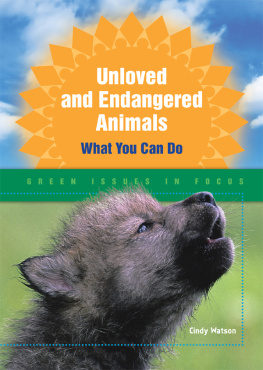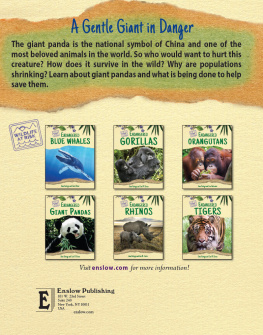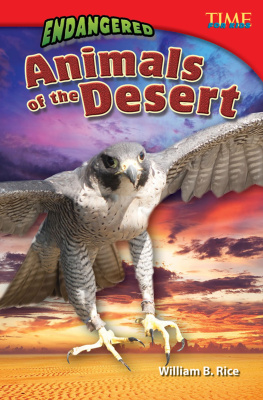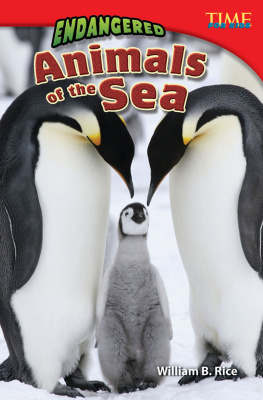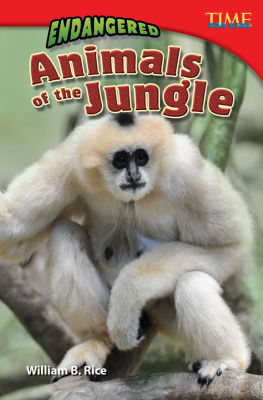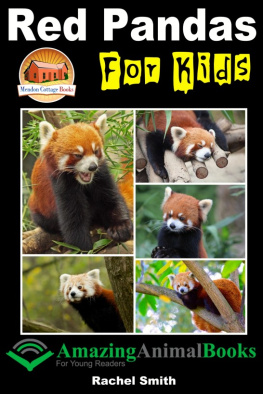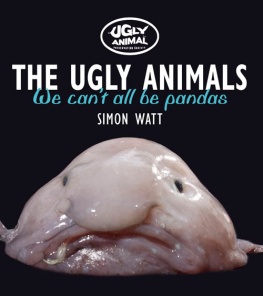Simon Watt - The Ugly Animals: We Cant All Be Pandas
Here you can read online Simon Watt - The Ugly Animals: We Cant All Be Pandas full text of the book (entire story) in english for free. Download pdf and epub, get meaning, cover and reviews about this ebook. year: 2015, publisher: The History Press, genre: Detective and thriller. Description of the work, (preface) as well as reviews are available. Best literature library LitArk.com created for fans of good reading and offers a wide selection of genres:
Romance novel
Science fiction
Adventure
Detective
Science
History
Home and family
Prose
Art
Politics
Computer
Non-fiction
Religion
Business
Children
Humor
Choose a favorite category and find really read worthwhile books. Enjoy immersion in the world of imagination, feel the emotions of the characters or learn something new for yourself, make an fascinating discovery.
- Book:The Ugly Animals: We Cant All Be Pandas
- Author:
- Publisher:The History Press
- Genre:
- Year:2015
- Rating:5 / 5
- Favourites:Add to favourites
- Your mark:
- 100
- 1
- 2
- 3
- 4
- 5
The Ugly Animals: We Cant All Be Pandas: summary, description and annotation
We offer to read an annotation, description, summary or preface (depends on what the author of the book "The Ugly Animals: We Cant All Be Pandas" wrote himself). If you haven't found the necessary information about the book — write in the comments, we will try to find it.
60 of the worlds ugliest and most endangered animals
This collection of 60 of the worlds most ugly (and endangered) animals, features rare imagery and explanatory text. The author is a high-profile biologist but also a stand-up comedian, and the text combines expert research with a light tone.
The Ugly Animals: We Cant All Be Pandas — read online for free the complete book (whole text) full work
Below is the text of the book, divided by pages. System saving the place of the last page read, allows you to conveniently read the book "The Ugly Animals: We Cant All Be Pandas" online for free, without having to search again every time where you left off. Put a bookmark, and you can go to the page where you finished reading at any time.
Font size:
Interval:
Bookmark:

CONTENTS
T HE UGLY ANIMAL Preservation Society is a comedy event with a conservation twist and was the starting point for this very book. The society was founded by biologist, writer and TV presenter Simon Watt and is dedicated to raising the profile of some of Mother Natures more aesthetically challenged children. In September 2012 they teamed up with the National Science and Engineering Competition to initiate a worldwide poll that saw the blobfish voted the ugliest animal in the world.
The society performs all over Britain, aiming to share their love of the wild world through the medium of stand up and their line-ups have featured a range of comedians including Paul Foot, Chris Dunford, Helen Arney, Bec Hill, Dean Burnett, Dan Schreiber, Ellie Taylor, Suzi Ruffell, Sarah Bennetto, and Iszi Lawrence.
Their first show was held in London in October 2012 and since then they have performed all over the country, including the Edinburgh Science Festival, Bristol Big Green Week, the Green Man Festival and the Cheltenham Science Festival. Details of their future shows and further information can be found at www.uglyanimalsoc.com.
T HE PANDA MADE me do it. It seems a strange excuse, but it is true.
Pandas are wonderful creatures. They exude a monochrome charisma that has made them famous the world over. The poor giant panda has seen its numbers plummet as human settlement and industry has encroached more and more on its habitat. Without breeding programmes and the protection of the bamboo forests where it lives, it could become extinct. Having said that, it may be endangered, but at least it is loved. It has become the poster boy for conservation and its cute and cuddly face can be seen adorning everything, from lunchboxes to Italian cars. Charities have rallied to its aid and it has become a national symbol of China. A large portion of its success has come from its evolutionary good fortune to happen to look like a teddy. The majority of endangered species are not so lucky. Many are incapable of grabbing headlines. In the limelight, many do not have star potential. But the catastrophe befalling the natural world is so much bigger than being a matter of saving the eye-catching species that star in documentaries. We should not pick and choose what survives, based solely on our shallow sense of aesthetics. The problems facing our planet are much bigger than that.
EXTINCTION
Extinction is a natural phenomenon. We can go further and say that extinction is an essential component of evolution: it is fundamental to the survival of the fittest. In order for natural selection to work, some species must succeed while others must die. We would not be here today if it were not for the demise of the dinosaurs. Extinction prunes the tree of life and research suggests that perhaps 99.99 per cent of all species that have ever lived have gone extinct. The average species only hangs around for about 5 or 10 million years. In many ways, we humans are merely filling our time, waiting our turn to disappear. Though extinction is an ongoing process, there have been spikes in its rate, known as the mass extinctions. We think that there were five particularly dangerous periods when the majority of species went under, the worst of which happened 250 million years ago and is known as the great dying. No one can be certain what caused it: it may have been an eruption from a super volcano or even a giant asteroid that whacked the earth, but it wiped out 95 per cent of all species and life is lucky to have survived at all.
Extinction may well be a natural phenomenon, but it is currently happening at an alarming rate. We estimate that mankind has accelerated the rate of extinction to between 1,000 and 10,000 times higher than it should be. Scientists refer to this man-made massacre as the sixth great extinction. It can be hard to believe that we are as potent a force of extinction as an asteroid strike, but it seems that we are.
THE SPICE OF LIFE
The variety of life is truly awe-inspiring. We estimate that there are around about 8.7 million species, of which less than 2 million have been formally described. We seem to discover about fifty species a day, with the majority of these being insects. A new species of beetle is discovered every few hours. We tend to be mammal-centric and almost narcissistic in our love of nature: we only care about species that remind us of ourselves, or those we consider cute. We favour animals with big eyes and bushy tails. We prefer our animals to have, at the very least, recognisable faces. Insects tend to be viewed as icky, and yet they are the majority. This is one of the reasons why we have to stop being so shallow in our superficial views of eco-systems. If many creatures disappeared without a trace tomorrow, I doubt the world would notice and many species may even prefer it. If a few key invertebrates vanished, it could cause global calamity, or at the very least smash our human society. Flies arent pretty, but they pollinate our crops. The lifestyle and jobs of detritivores species that live on faeces are unappealing, but without them we would be up to our neck in it. We may well find about fifty species a day, but we estimate that up to 200 species are disappearing daily too.
ENDANGERED BUT NOT UGLY
We have all heard of the plight of the snow leopard, the elephant, the rhino, the mighty lion, the polar bear and the gorilla. It is a tragedy that some of these species could well die out within our lifetime. It is dreadful to think that we could one day have to explain to our children what a tiger was. We call these species the charismatic megafauna and they grab the headlines. These are the animals that we all learn about and learn to love from childhood. There have always been people proclaiming that we must save the whale, but until now, no one has shouted, Save the slug. Even our zoos seem to have a bias, favouring creatures that will draw in the crowds, as opposed to those that make our skin crawl.
UGLY BUT NOT ENDANGERED
There are many amazing species out there that are not as well known as they should be, simply because of their dreadfully unattractive looks. The naked mole rat is a fascinating creature, with a queen and a caste system akin to that of ants and bees. It looks like a sabre-toothed sausage and it is studied the world over because of its long lifespan, inability to feel pain and resilience to cancer. Its appearance makes it a perfect candidate for this book but, fortunately, its population is stable in the wild and its safety is assured, because of the specimens maintained for study in medical research laboratories and zoos the world over. The greater short-horned lizard is a species I find fascinating, because of its highly unusual anti-predator defence technique of shooting blood from its eyes at any assailants. Though its population is declining in some parts of the world, it is sufficiently widespread to mean that limited conservation money would be wiser spent elsewhere. The same goes for the floating cartilaginous head that is the sunfish and the terrifyingly unsightly goblin shark. They are far from pleasing to the eye, but conservationists class them as of least concern. We do not sing the praises of species like these enough, but they are secure and do not need our consideration as badly as others. They are, for now at least, not at risk of going extinct. I want this book to focus on species that need our attention and help as much as the panda does. I wanted to find the ugly ambassadors for all the neglected endangered animals that have been overlooked because of their appearance.
UGLY BUT DATA DEFICIENT
Trying to focus on endangered species has proven to be a more difficult task than I had originally envisaged. This is mainly because the vastness of the natural world poses conservationists with substantial logistical problems. The International Union for the Conservation of Nature is the leading authority on the state of the planets wildlife. It is striving to document and determine where each species lives and how its population is faring. This is a gargantuan task and the result is that, for many animals, we have no idea about the size and distribution of their population. Not only does this mean that it is likely that many species are disappearing without us ever having noticed their existence in the first place, but that many species we are aware of may be doing much worse than we know. When we uncover a new species in some of the worlds diversity hot spots, the chances are that it is endangered because of its small and limited range. We can guess that it is rare and in need of protection, even if we have not yet formally recognised its rarity. The long-tailed ninja slug, which fires love darts at its mate, was only recently discovered in the heart of Borneo. Like so many creatures found in this region, it is still awaiting formal classification, but the chances are that it will go straight onto the endangered species list. Scientists are trying to protect these areas, knowing that any damage done could irreparable.
Next pageFont size:
Interval:
Bookmark:
Similar books «The Ugly Animals: We Cant All Be Pandas»
Look at similar books to The Ugly Animals: We Cant All Be Pandas. We have selected literature similar in name and meaning in the hope of providing readers with more options to find new, interesting, not yet read works.
Discussion, reviews of the book The Ugly Animals: We Cant All Be Pandas and just readers' own opinions. Leave your comments, write what you think about the work, its meaning or the main characters. Specify what exactly you liked and what you didn't like, and why you think so.

